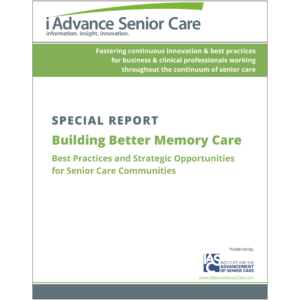Caregiver advocates ramp up equality message on labor law
This is going to appear strange, but I’ll come out with it anyways: I find policy stories legitimately interesting. And I’m not just saying that because it’s my job to pay attention.
One of the more exciting aspects of covering an industry so heavily affected by government policy is to observe how provider associations and advocates aggressively lobby for change. In long-term and post-acute care, there is no shortage of vocal supporters vying for their crumb of regulatory reprieve. But how often do groups demand actual change?
This most recent example of industry supplication comes from PHI, which has been requesting—rather loudly, I might add—that the Fair Labor Standards Act (FLSA) live up to its namesake.
The organization is fighting the FLSA’s “companionship exemption,” which places an exemption on companions for the aged and infirm from enjoying both minimum wage and overtime pay requirements inherent to the FLSA. Home care workers were lumped into this category of companion.
But home care isn’t what it used to be. As PHI notes through a torrent of facts sheets, the home care industry today employs close to 2 million workers. The organization argues that these workers, who are now tasked with more responsibilities to care for an aging population, are underpaid and living off public assistance to supplement their incomes, impacting efforts to both improve home care jobs and in-home care quality. The companionship exemption, as originally drafted, does not apply for this current generation of caregiver.
And this ruckus has proved fruitful for PHI. Last December, a notice of proposed rulemaking was published to revise the FLSA’s companionship exemption. Under the amendment, “third party employers, such as in-home care staffing agencies, could not claim the exemption, even if the employee is jointly employed by the third party and the family or household.”
Comments on the Department of Labor’s proposed rule are being accepted until February 27. PHI is anticipating home care agencies to say they can’t afford an increase in pay for their workforce, or to cover overtime and travel time pay.
Full disclosure: PHI’s Susan Misiorski writes a monthly staffing blog for Long-Term Living. The relationship between PHI and Long-Term Living has no influence on my opinions shared in this blog.
With that out the way, I don’t want to claim that home care businesses can afford these payroll changes, if they are to pass. That’s PHI’s job. But I will be baffled for this amendment not to pass based solely on the direction the nation is headed.
States are turning toward home- and community-based services to provide long-term care. No, this will not replace nursing homes. What it does replace is the notion that caring for the elderly and disabled is something the common American does not need to worry about. The future of long-term care will be grim if the workforce is not there to support its swelling population of elders. To raise these alarms and yet deny such basic labor protections to the very workforce needed to care for our elders would be stupefying.
Or maybe it would just be business as usual.

Kevin Kolus wrote for I Advance Senior Care / Long-Term Living when he was an editor. He left the brand in 2012. He is now senior communications manager at Cleveland Clinic.
Related Articles
Topics: Advocacy , Staffing











